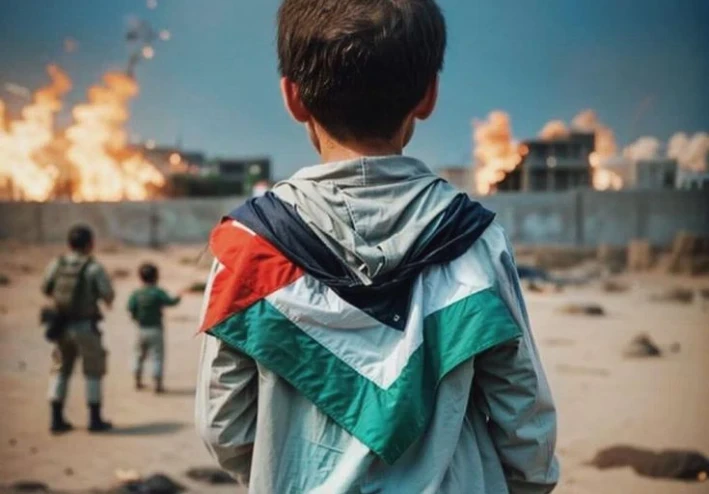
اسرائيل وقتل الاطفال 🇵🇸
The Israel-Palestine conflict is one of the most enduring and complex disputes in modern history. Rooted in a mix of historical grievances, territorial claims, and cultural identities, the conflict has led to profound suffering on both sides. However, the Palestinian people have faced significant hardships, particularly due to the actions and policies of the Israeli government. This article delves into the nature of the conflict, highlighting the injustices faced by Palestinians and the broader implications for peace in the region.
Historical Context
The origins of the Israel-Palestine conflict date back to the late 19th and early 20th centuries, as both Jewish and Arab national movements began to take shape. The Balfour Declaration of 1917, which expressed British support for a Jewish homeland in Palestine, set the stage for escalating tensions. The establishment of Israel in 1948, following the end of the British Mandate, led to the displacement of hundreds of thousands of Palestinians, an event known as the Nakba, or "catastrophe."
Israeli Occupation and Settlement Expansion
Since the Six-Day War in 1967, Israel has maintained military control over the West Bank and Gaza Strip. This occupation has resulted in widespread human rights violations. Palestinians face restrictions on movement, arbitrary detentions, and the demolition of homes. Furthermore, the expansion of Israeli settlements in the West Bank has significantly reduced the land available to Palestinians, creating a fragmented and unviable state.
Human Rights Violations
Numerous reports from international organizations, including Amnesty International and Human Rights Watch, have documented abuses against Palestinians. These violations include excessive use of force by Israeli security forces, discriminatory laws, and restrictions on access to essential services like healthcare and education. The blockade of Gaza, imposed since 2007, has led to a humanitarian crisis, with limited access to basic necessities and healthcare.
The Role of the International Community
The international community has often been divided on how to address the conflict. While many countries and organizations advocate for a two-state solution, genuine efforts to mediate peace have been sporadic. The U.S. has historically been a strong ally of Israel, which complicates diplomatic initiatives. Many countries, however, have expressed solidarity with the Palestinian cause, calling for an end to occupation and support for Palestinian self-determination.
The Impact of Media and Public Perception
Media portrayal of the conflict significantly influences public opinion. Coverage often reflects a narrative that overlooks the systemic injustices faced by Palestinians. Balanced reporting is crucial in raising awareness about the plight of the Palestinian people and the need for a fair resolution. Social media has also played a vital role in mobilizing support and sharing the realities on the ground.
Paths to Peace
Achieving a lasting peace requires addressing the root causes of the conflict. This includes recognizing Palestinian rights, halting settlement expansion, and ensuring equitable access to resources. Initiatives must focus on dialogue and understanding, fostering mutual recognition of rights and historical narratives. International pressure on Israel to comply with international law is also essential.
Conclusion
The Israel-Palestine conflict is marked by deep-rooted injustices and human suffering, particularly for the Palestinian people. Understanding the historical context and current realities is crucial in advocating for a fair resolution. The international community must engage constructively, pushing for policies that uphold human rights and pave the way for a just and lasting peace. Only through mutual respect and acknowledgment of each other's rights can a peaceful coexistence be achieved.
Call to Action
To foster awareness and support for the Palestinian cause, individuals can engage in activism, support humanitarian organizations, and advocate for policy changes in their respective countries. A collective effort can lead to meaningful change and contribute to a future where both Israelis and Palestinians can live in peace and security.






























